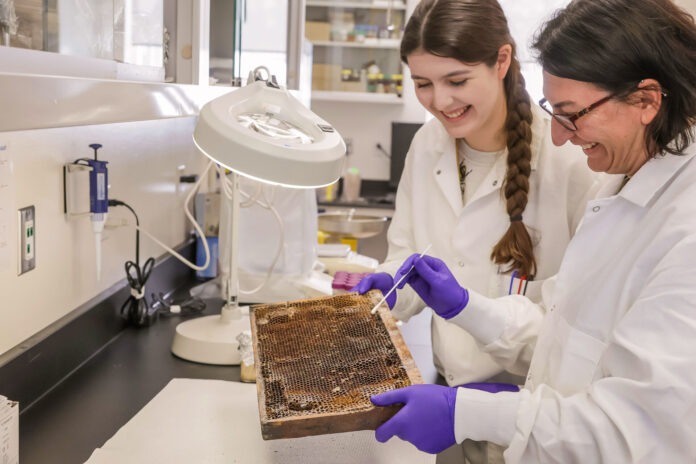Northwestern Polytechnic’s Bee Diagnostic Centre is buzzin’ after receiving a $195K grant geared at protecting honey bees.
Officials say the grant, from Results Driven Agriculture Research, will be used over the next two years to advance research in examining a known parasite risk to honey bee colonies, and resistance to common treatment.
The collaborative research effort will see scientists, beekeepers from around the country, and industry leaders coming together, with the hope that the project will help inform future trade and policy decisions. NWP President and CEO Dr. Vanessa Sheane says her school is proud to contribute to the research.
“RDAR is a valued partner and great facilitator of applied research projects that continue to shape the agriculture landscape in northern Alberta and beyond,” she says.
The Diagnostic Centre’s research will focus specifically on identifying insecticide resistance observed in the “Varroa Destructor” mite population- which officials say is the leading cause of bee hive loss. Patricia Wolf Veiga with NWP says the disease-ridden mite attaches itself to the bees, which weakens them, and ultimately contributes to colony mortality.
“Over the last decade, the preferred method to control Varroa mites has been Amitraz acaricide,” says Wolf Veiga. “However, beekeepers in the US, Europe, and Canada have recently begun to report reduced efficacy.”
Researchers in Beaverlodge will screen the mite populations in Canadian apiaries for genetic mutations associated with their resistance, assisting beekeepers in making decisions to limit and control an infestation.



